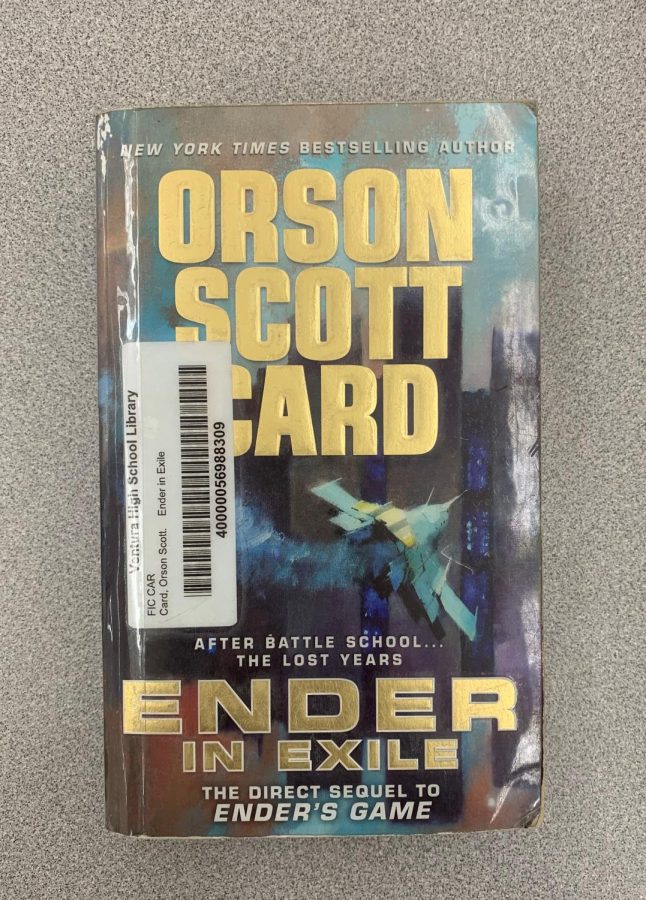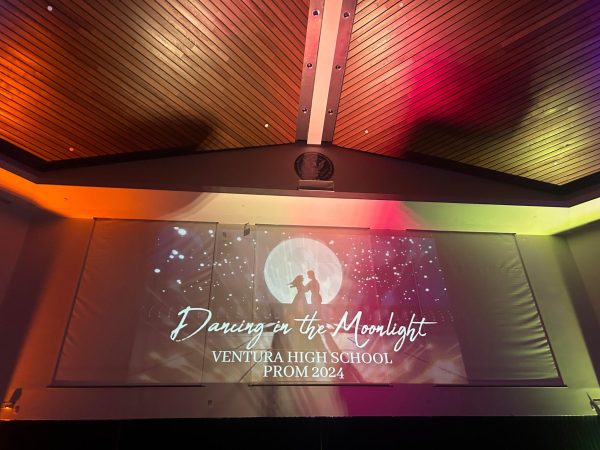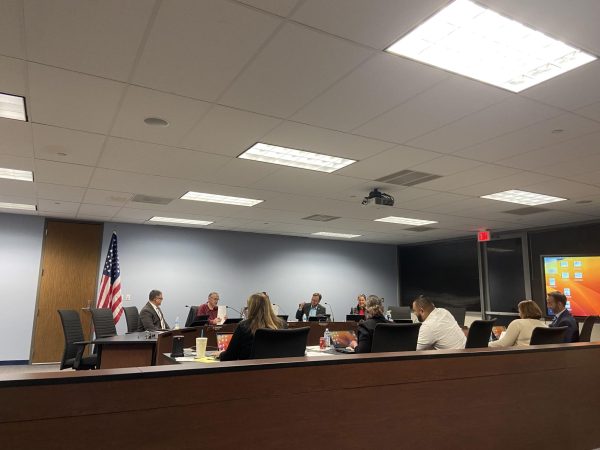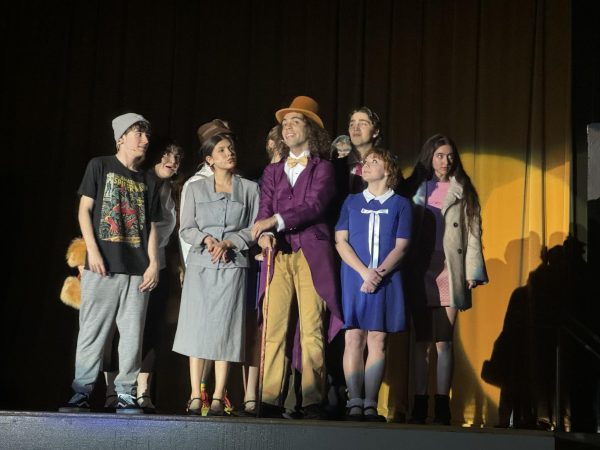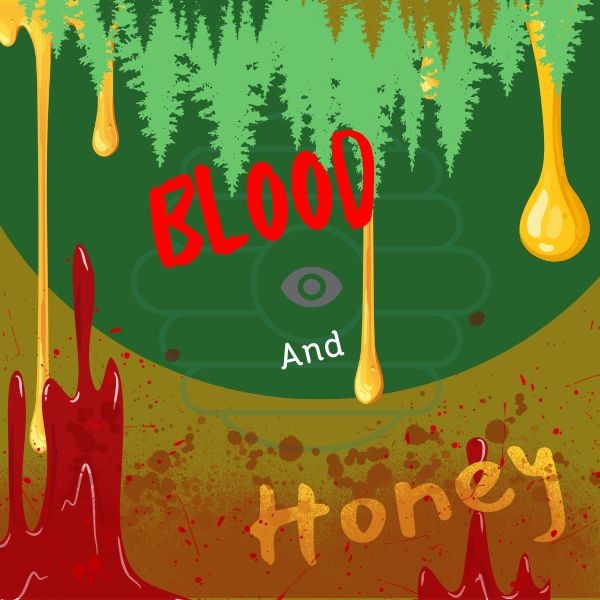Book review: “Ender’s Game” is out of this world
Curtis said, “‘Ender’s game’ is my favorite, but this one [‘Ender in Exile’] is pretty good too.” Photo by: Brody Daw
November 15, 2022
A book redefining human ethics and politics through a dystopian world
“Ender’s Game,” written by Orson Scott Card, is a book about Andrew “Ender” Wiggin saving the planet. The catch? He’s only six years old when he’s whisked away from his family to fight for the future of humanity in “Ender’s Game.” As calculating powerful military leaders mold him into the image of a great strategist and leader, he is forced to leave his childhood behind and embrace his new harsh reality. Early mornings, grueling days and sleepless nights transform Ender from an innocent bright child into a calculating isolated commander.
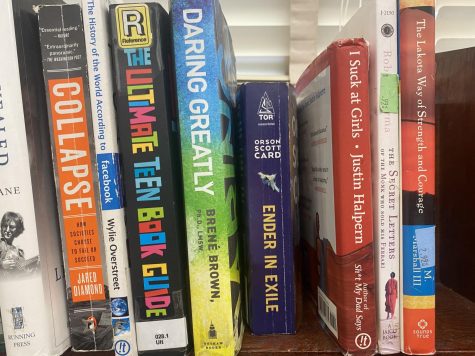
Parallel on Earth are the feats of Ender’s talented siblings, Valentine and Peter, as they try to conquer the world under the pseudonyms Locke and Demosthenes on the web through writing online pieces about the world’s politics. Driven by his resentment of Ender’s accomplishments, Peter attempts to sway the minds of the people and obtain the power he has sought so desperately after with the help of Valentine.
The two extraterrestrial and terrestrial wars, waged in space and on land, country against country, encompass the Wiggin family completely. As Ender trains to defeat his monstrous enemies, the buggers, Peter and Valentine ignite conflict on Earth. One tries to save the world, whereas the other looks to control it.
“Ender’s Game” has an exquisite plot line and ending, with a likable yet intriguing cast. Each character has a mind of their own with contrasting personalities and ideologies, causing many interesting conflicts throughout the plot, contrasting belief with another belief. The novel goes over several different motifs and themes involving loyalty and faith while also posing philosophical questions such as, “Do the ends justify the means?”
Sarah Bell ‘23 said, “‘Ender’s game’ is one of my favorite books. Ender amazes me. I couldn’t imagine doing what he did at six years old.”
Another topic that “Ender’s Game” does quite well in encapsulating is discrimination and miscommunication between one another. The humans on Earth all discriminate against the Buggers and fear them due to a huge miscommunication and misunderstanding. Consequently, they have decided that they must exterminate the alien race altogether under the excuse of “saving humanity” rather than attempting to negotiate for peace. Card subtly introduces this as a theme towards the ending of the novel as readers are slowly given the whole truth behind Ender’s whole situation.
Aelo Curtis ‘25 said, “I really liked the book because it was interesting and had a unique topic, it was different from most books I’ve read. I enjoyed all the different aspects.”
Rather shrewdly, the author also carefully leads readers along and causes them to antagonize the aliens just as much as everybody else through Ender, who can be considered an unreliable narrator. However, he doesn’t just portray these concepts with the aliens either, he also shows them through the conflict on land when humans start to wage civil war against each other. Card splendidly intertwines war in space and war on land with each other to demonstrate how quickly humans are prone to violence rather than peace and negotiation. The love, hate and forgiveness of siblings are exemplified within this book. As the brightest children outwit the most intelligent adults, they hold onto their relationships with one another to keep their drive and sanity. In a world completely controlled by adults and secrets, they persist to find their own truth, love and hatred.




